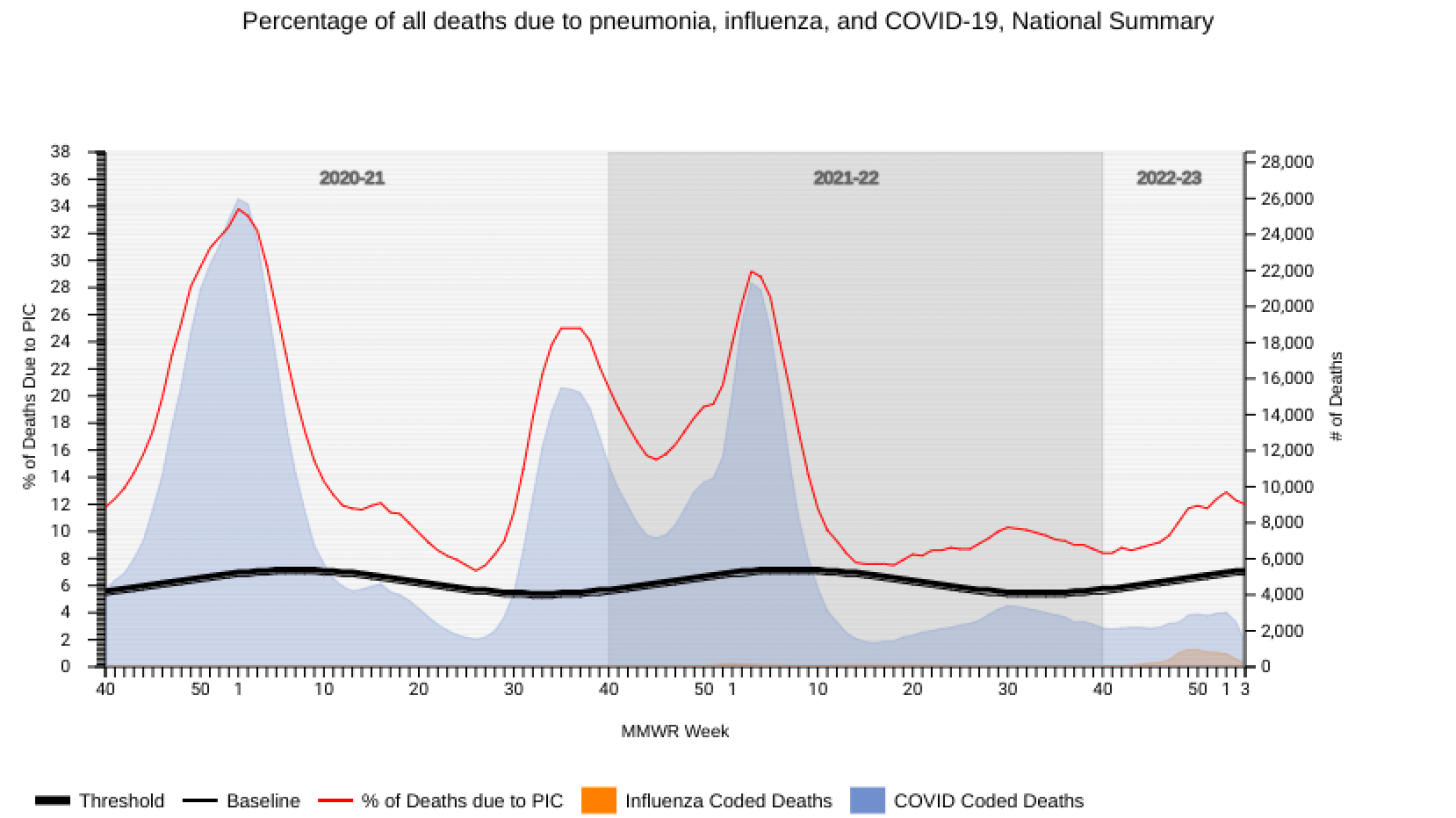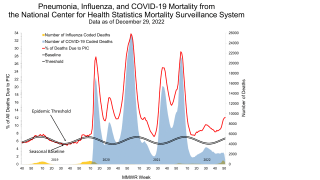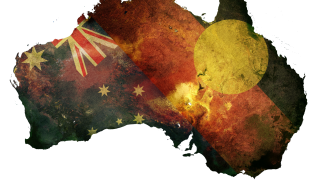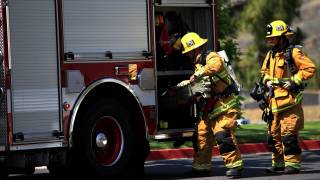Tri-demic Surged Pneumonia Cases in 2023

The combination of influenza, COVID-19, and respiratory syncytial virus (RSV) severely strained hospitals this winter.
Although many people infected with these airborne viruses will recover, many develop pneumonia and require hospital treatment.
Pneumonia is an infection of the lungs that viruses, bacteria, or fungi can cause. And it causes air sacs to fill up, making it harder to breathe and for organs to get enough oxygen.
According to National Center for Health Statistics (NCHS) Mortality Surveillance data available on January 26, 2023, 12.0% of the deaths that occurred during the week ending January 21, 2023 (week #3), were due to pneumonia, influenza, and/or COVID-19 (PIC).
This percentage is above the epidemic threshold of 7.1% for this week.
Among the 2,877 PIC deaths reported, 1,357 had pneumonia listed as an underlying or contributing cause of death on the death certificate, 1,332 had COVID-19, and 188 listed influenza.
Unfortunately, 91 influenza-associated pediatric deaths have occurred during the 2022-2023 season.
The most common cause of bacterial pneumonia is Streptococcus pneumoniae, also known as pneumococcus, which usually lives harmlessly in the upper airways.
Most people will recover from pneumonia, but this can take time. Although some people may feel ready to resume everyday routines within a week, this can take a month or longer, and it is also normal to feel tired for about a month.
Furthermore, U.S. Food and Drug Administration (FDA) pneumococcal vaccines are available to help protect against pneumococcus. These vaccines are offered to older adults, young children, and people with certain medical conditions or risk factors.
Eligible people can reduce the risk of pneumonia by getting a pneumococcal vaccine, an annual flu shot, and/or a COVID-19 booster in 2023.
And since whooping cough, measles, and Haemophilus influenzae type B can also trigger pneumonia, it is essential to stay up to date with these vaccinations as well, says the U.S. Centers for Disease Control and Prevention.
These FDA-approved vaccines are generally available at most clinics and pharmacies in the U.S.
But, RSV vaccine candidates are not yet FDA approved.
Our Trust Standards: Medical Advisory Committee
























